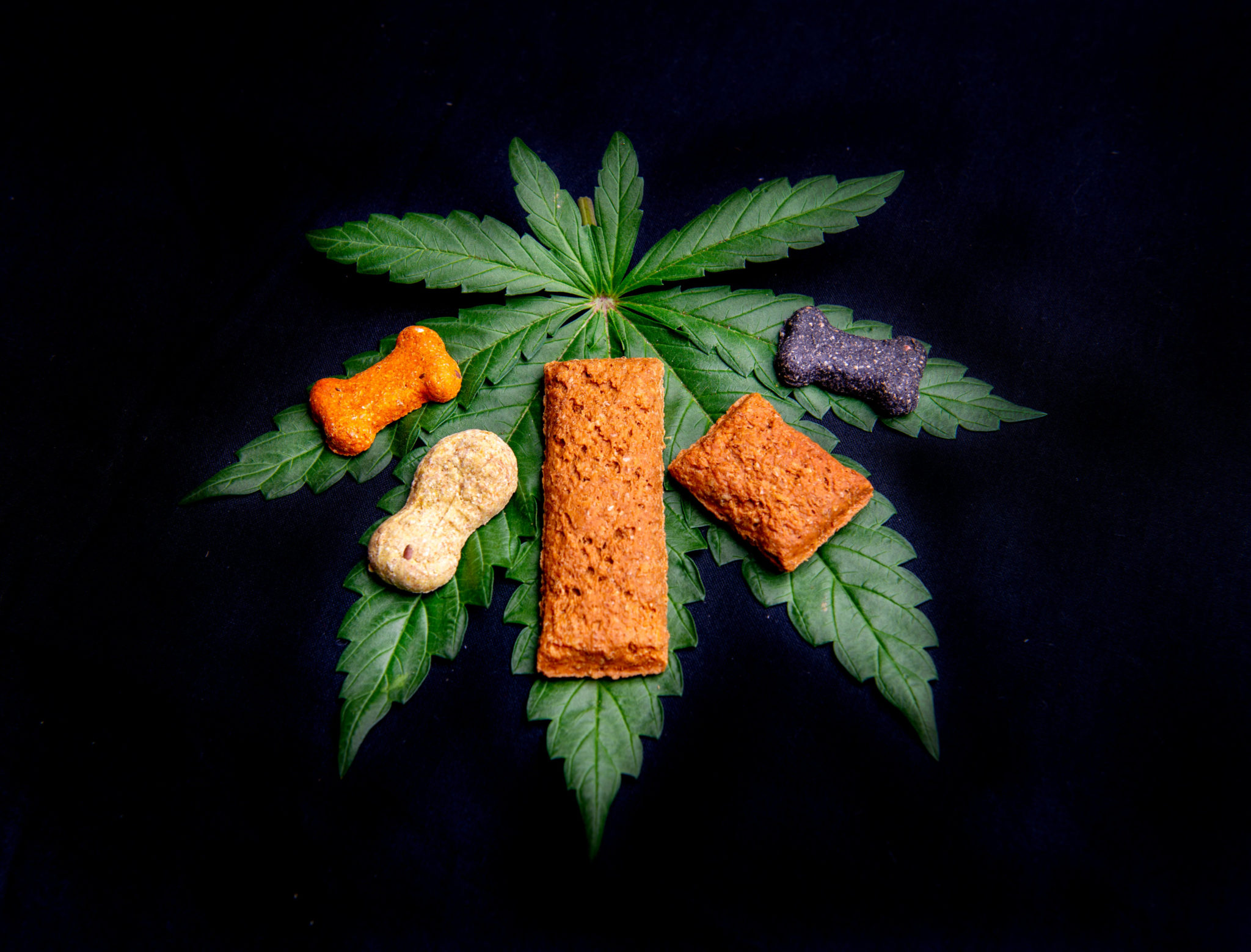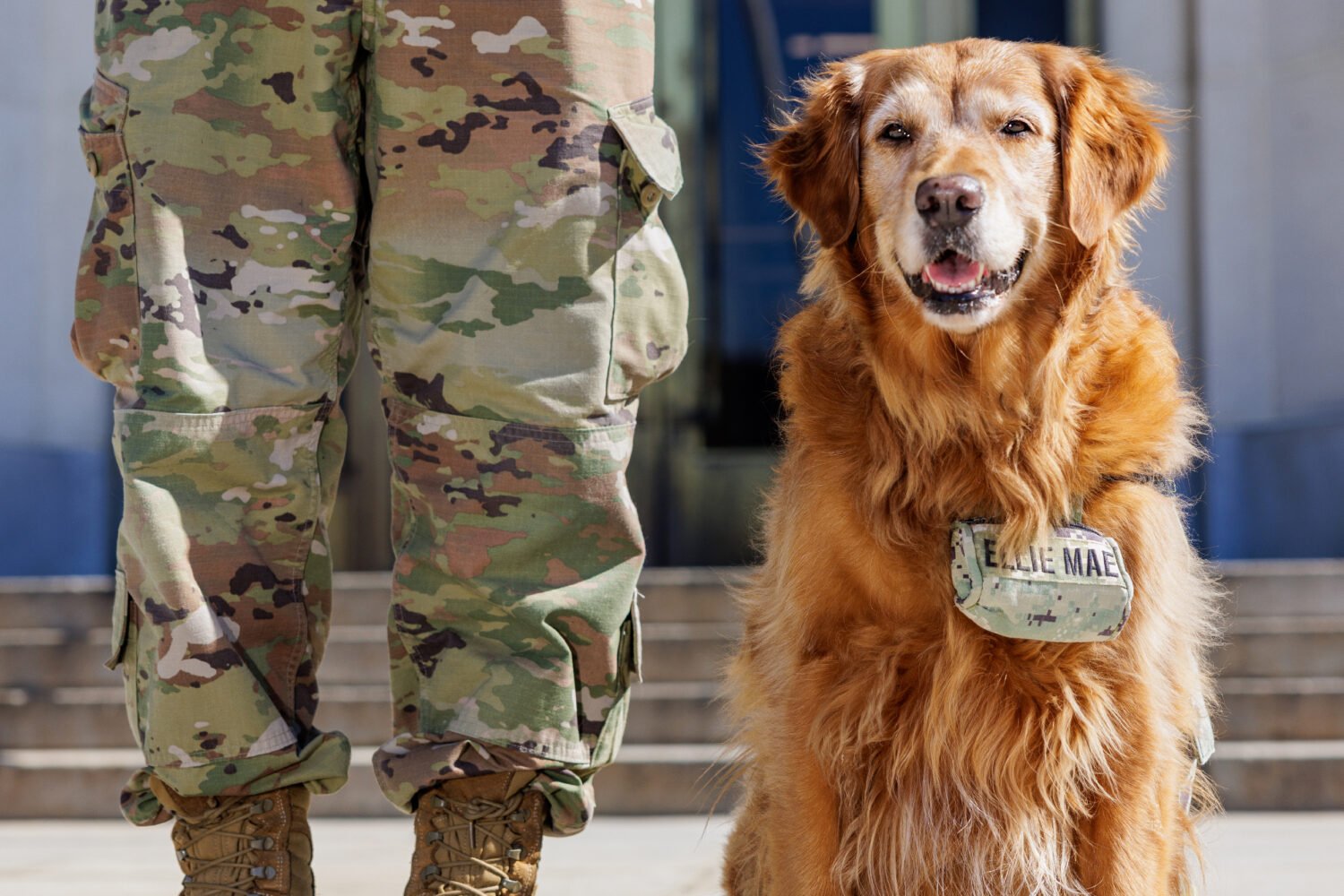Bailey, a nervous basset-hound mix who lives in Shaw, knows a thing or two about wellness trends. She eats chicken with fresh apples and carrots that her owner meal-preps for her every week. She kayaks. She sometimes uses a white-noise machine to fall asleep. Most recently, she has tapped into the reigning wellness craze: CBD oil.
Previously, the vet recommended Trazodone, a prescription sedative, to treat Bailey’s nervous shedding and shaking. But the side effects made her owner, Sandy Guillermo, uncomfortable. “You could see that she was high,” says Guillermo, an administrative assistant. “Completely drugged up.” So for the past year, Guillermo has fed Bailey a daily CBD chewable along with multivitamins and turmeric tablets. As a result, she says Bailey has mellowed out dramatically. Even the Fourth of July—which used to terrify the dog—didn’t rattle her too badly.
Guillermo has tried CBD herself, but the idea to give it to Bailey came from the DC Single Dog Parents group she founded. Other members had been talking about using it for their pets. In fact, it has lately become one of the hottest topics among doting Washington dog owners—which isn’t so surprising. Like veganism or intermittent fasting, CBD is the kind of thing that can turn fans into proselytizers. Never mind that there isn’t much science yet to back them up.
Take Navy, a Loudoun County corgi whose raw diet and travel tips are chronicled on the “dog-friendly lifestyle blog” Navy Corgi and whose Instagram account has nearly 80,000 followers. Her owner, Alex, says the blog’s most read post is not about doggy DNA testing or subscription toy boxes—it’s about Navy’s experience using CBD for separation anxiety. Since the post, Alex has fielded sponsorship opportunities for pet CBD products. Though she’s been offered up to $1,500 for a single post, Alex has accepted only free treats (and no money) from the brand that she knows has actually helped her dog. Before, when Navy was alone in a strange setting such as a hotel, she would scratch the walls and yap. Now if Alex gives her one of the treats before she leaves, she says Navy just goes to sleep.
Yet even as positive anecdotal evidence mounts, there’s no conclusive proof that CBD works in pets. After the 2018 Farm Bill lessened restrictions on CBD—a compound derived from hemp that can be soothing but, unlike marijuana, doesn’t get you high—the marketplace flooded with products for both people and animals. The Dupont pet boutique Doggy Style started carrying CBD treats and balms last year, and owner Krista Heinz says they’ve quickly become popular. District Hemp Botanicals owner Barbara Biddle says pet treats and oils are some of her bestsellers—one of her clients uses the oil for her rescue chicken’s injured leg.
Still, the few studies on CBD and pets end with “additional research is warranted.” The FDA also hasn’t approved a single CBD product for animals. Which is why DC veterinarian Wendy Knight, co-owner of CityPaws Animal Hospital, isn’t ready to recommend it to patients. “The first oath that we take is to do no harm,” says Knight. “We don’t have a guideline for how much to give, [for] what’s appropriate.”
Even so, a lot of dog owners are using CBD to treat conditions much more serious than jittery nerves. Last year, after Bridget Passarelli discovered that her Chihuahua, Lola, was having seizures, she spent $2,000 on CAT scans, neurologist visits, and medications. She stumbled on CBD when she began researching seizure treatments for humans. Now when Lola begins to lick her lips and cough—signs that a seizure is imminent—Passarelli feeds her four peanut-butter-flavored drops. She credits the CBD for reducing the frequency of Lola’s seizures from weekly to monthly and for decreasing their severity.
Wheaten terrier Mac also seemingly had a turnaround after starting a CBD regimen. He was diagnosed with a tumor on his spleen at age 13, and his vet at Falls Church Animal Hospital recommended CBD oil. Weeks earlier, Mac’s owner, Meredith Jacobs, had been on the floor begging him to eat roast chicken, and Mac hadn’t been able to walk around the block. But within 48 hours of taking CBD drops, Jacobs says the dog’s appetite and energy rebounded.
Mac died in June, two years after his vet predicted he would survive two months. Even without medical proof that the drops extended her dog’s life, Jacobs says, “I definitely became the neighborhood spokesperson for CBD.”
This article appears in the March 2020 issue of Washingtonian.



















